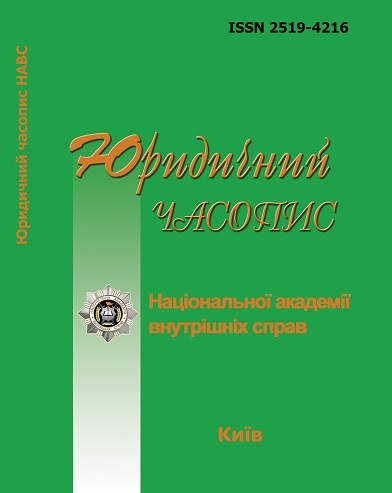Ontological and Axiological Peculiarities of Proof in the Constitutional Trial of Foreign Countries
Abstract
The article is devoted to the important but seldom investigated problems of determining the ontological and axiological dimensions of the philosophical and legal principles of proof in the constitutional court process.
The author pays special attention to the definition of general and distinctive features of the constitutional jurisdiction of the constitutional court proceedings, whose activities are based on Anglo-American and European (kelsens) models.
According to the author, the results of the study give grounds for the conclusion that: ontological peculiarities of evidence in a constitutional trial in any country derive from the content of the corresponding philosophical and legal doctrine, in this case, the legal ontology, the discipline whose object of study is the problem of the existence of law; the axiological peculiarities of proof in the constitutional process of any country are conditioned, first of all, by the ideological approach to understanding the process and the subject of the philosophical and legal doctrine on their formation, application and protection – the constitutional axiology. the European (kelsens) model of constitutional justice envisages the creation of special constitutional courts, which, as a rule, are not part of the judicial system and consider issues assigned to their competence outside the context of the circumstances that led to the appeal to them; according to the Anglo-American system, the constitutionality of normative legal acts is checked by courts of general jurisdiction, in some courts, and in others, only the Supreme Court, after considering a particular case by lower courts; the powers and basic principles of the functioning of the constitutional justice body of any model are determined by the norms of the constitutions and specified by the relevant laws; the subject of evidence in a constitutional proceeding according to any model, as a rule, follows from the powers specified by the constitution and coincides with the subject of consideration of a particular case in accordance with the procedure established by law.
Downloads
Abstract views: 97 PDF Downloads: 39
Copyright (c) 2018 Law Magazine of the National Academy of Internal Affairs

This work is licensed under a Creative Commons Attribution-NonCommercial-NoDerivatives 4.0 International License.
- Authors reserve the right to authorship of their own work and transfer to the magazine the right of the first publication of this work under the terms of the Creative Commons Attribution License, which allows other persons to freely distribute published work with mandatory reference to authors of the original work and the first publication of an article in this magazine.
- Authors have the right to enter into separate additional agreements on non-exclusive dissemination of the work in the form in which it was published in the journal (for example, to post an article in the institution's repository or to publish as part of a monograph), provided that the link to the first publication of the work in this journal is maintained.
- The journal's policy allows and encourages the posting of articles by authors on the Internet (for example, in electronic storehouses of institutions or on personal websites), both before the submission of this manuscript to the editorial office and during its editorial processing, as this contributes to the creation of a productive scientific discussion and positively affects the efficiency and dynamics of citing the published work.




